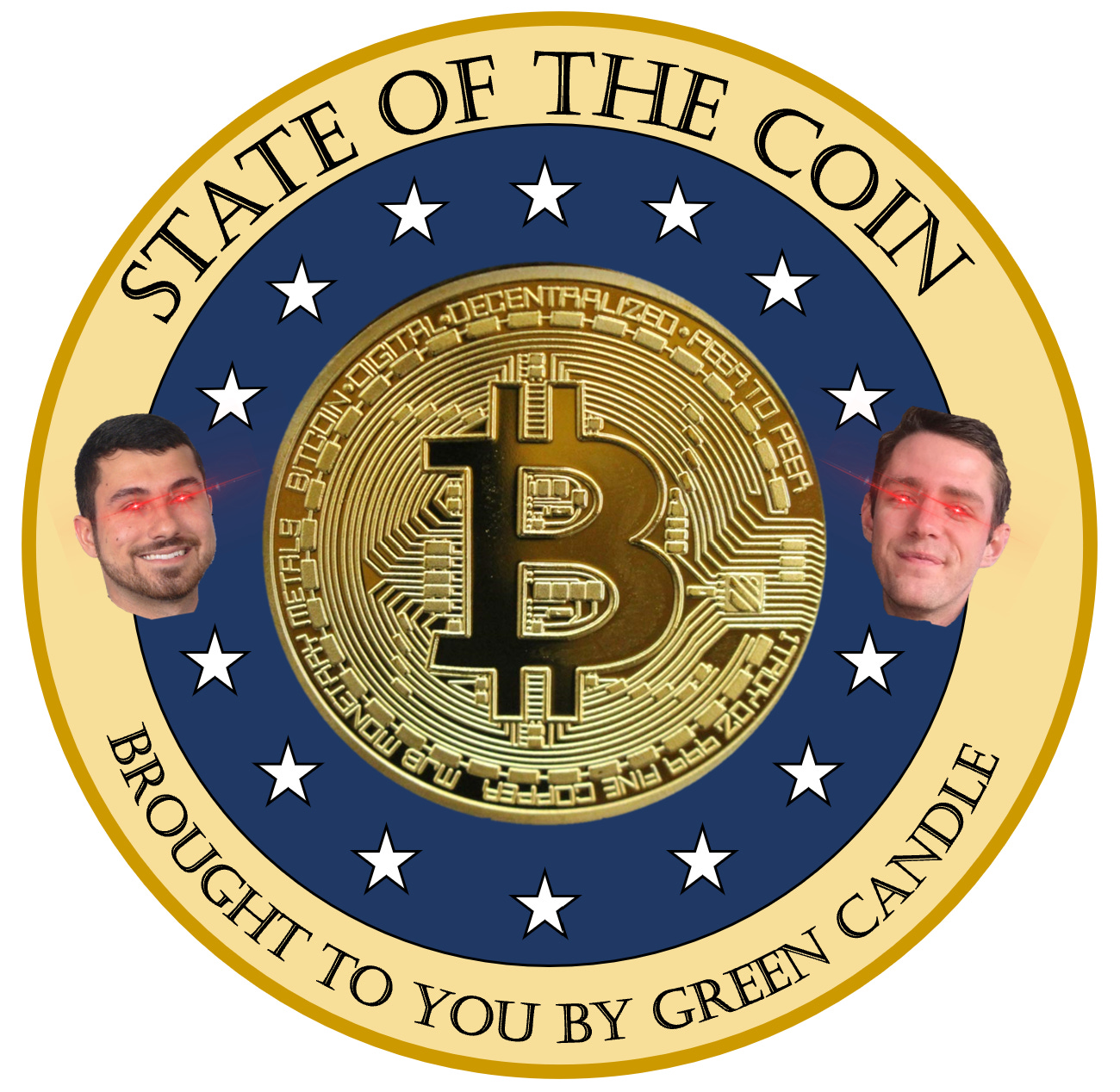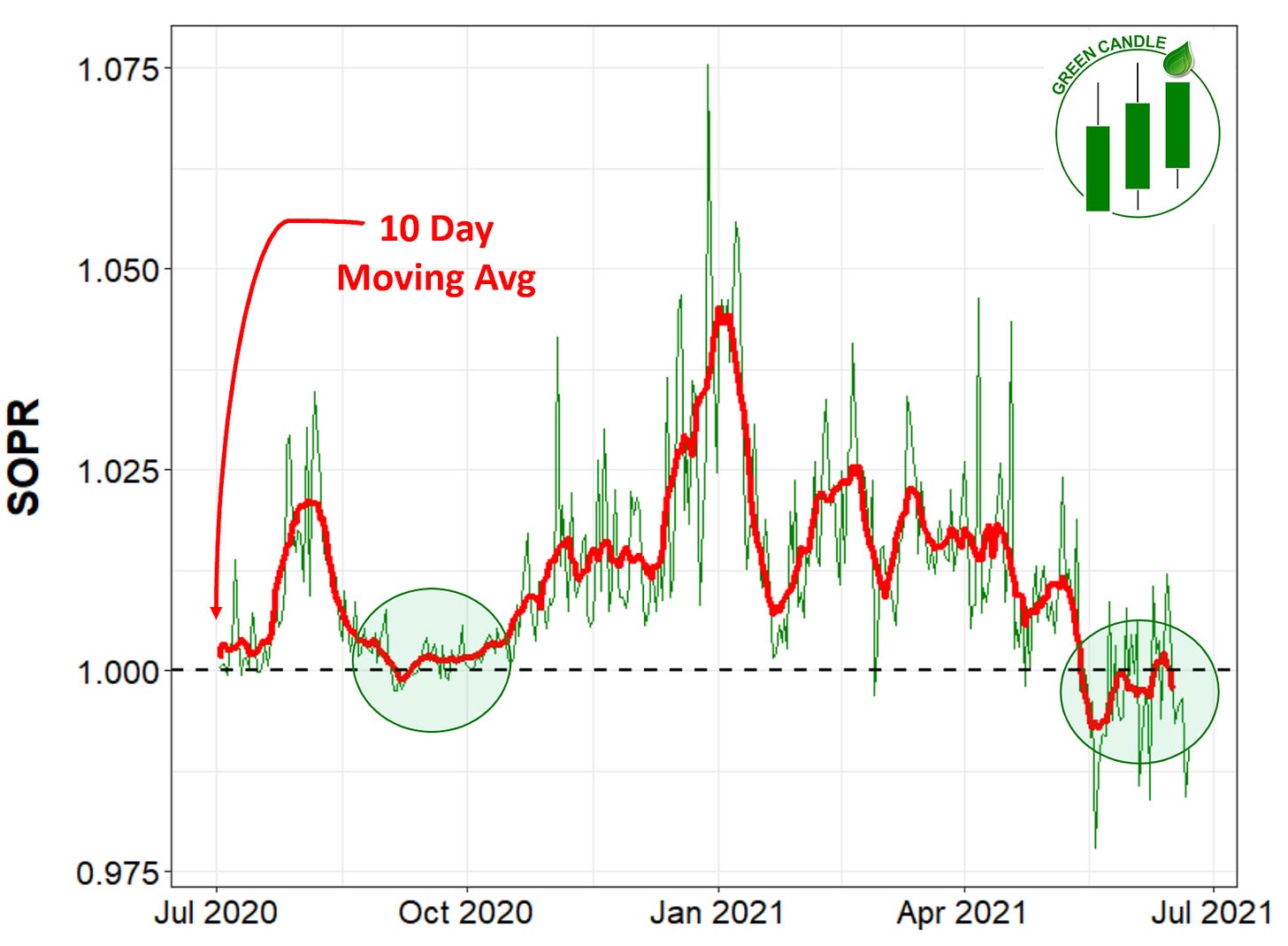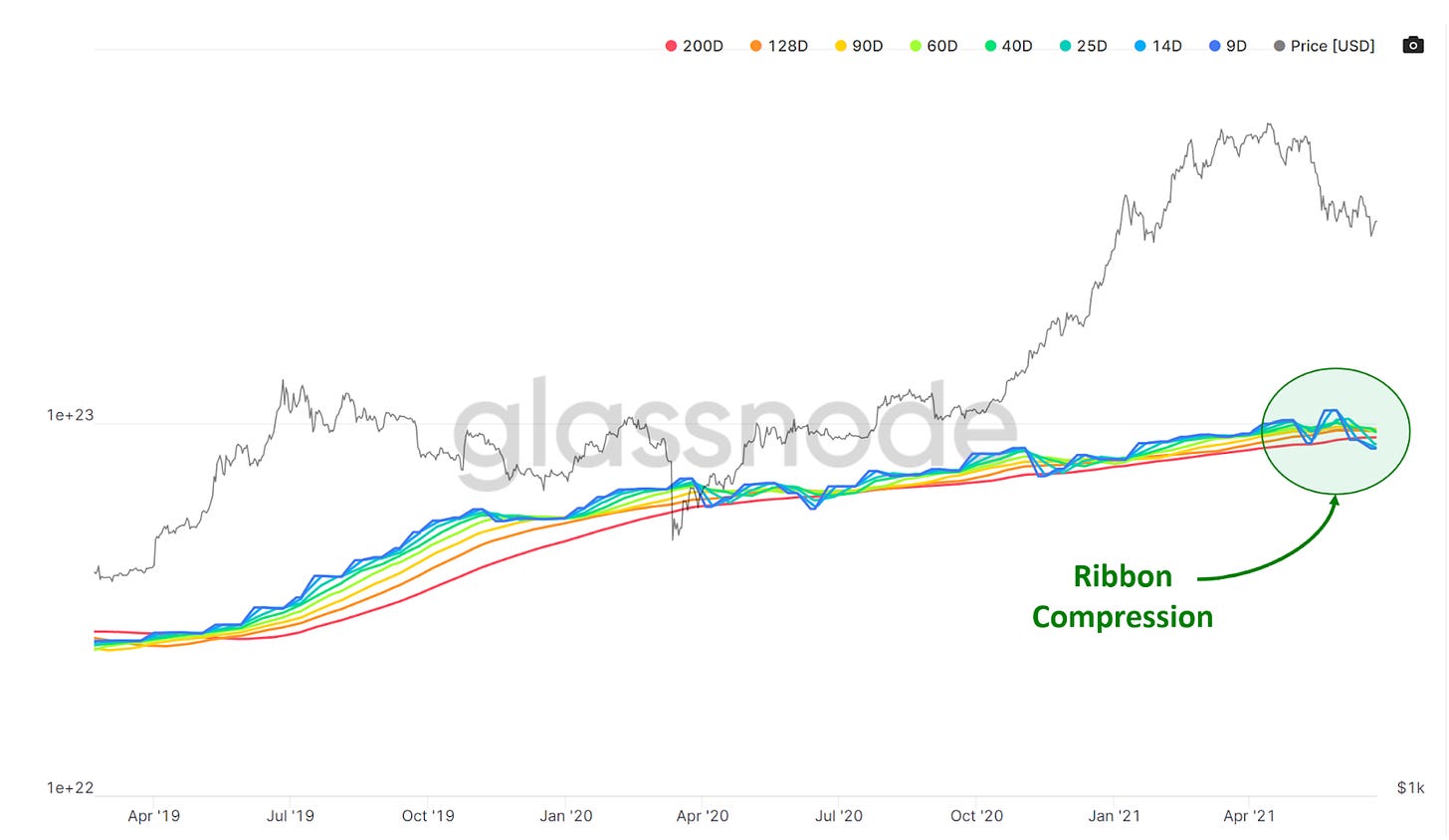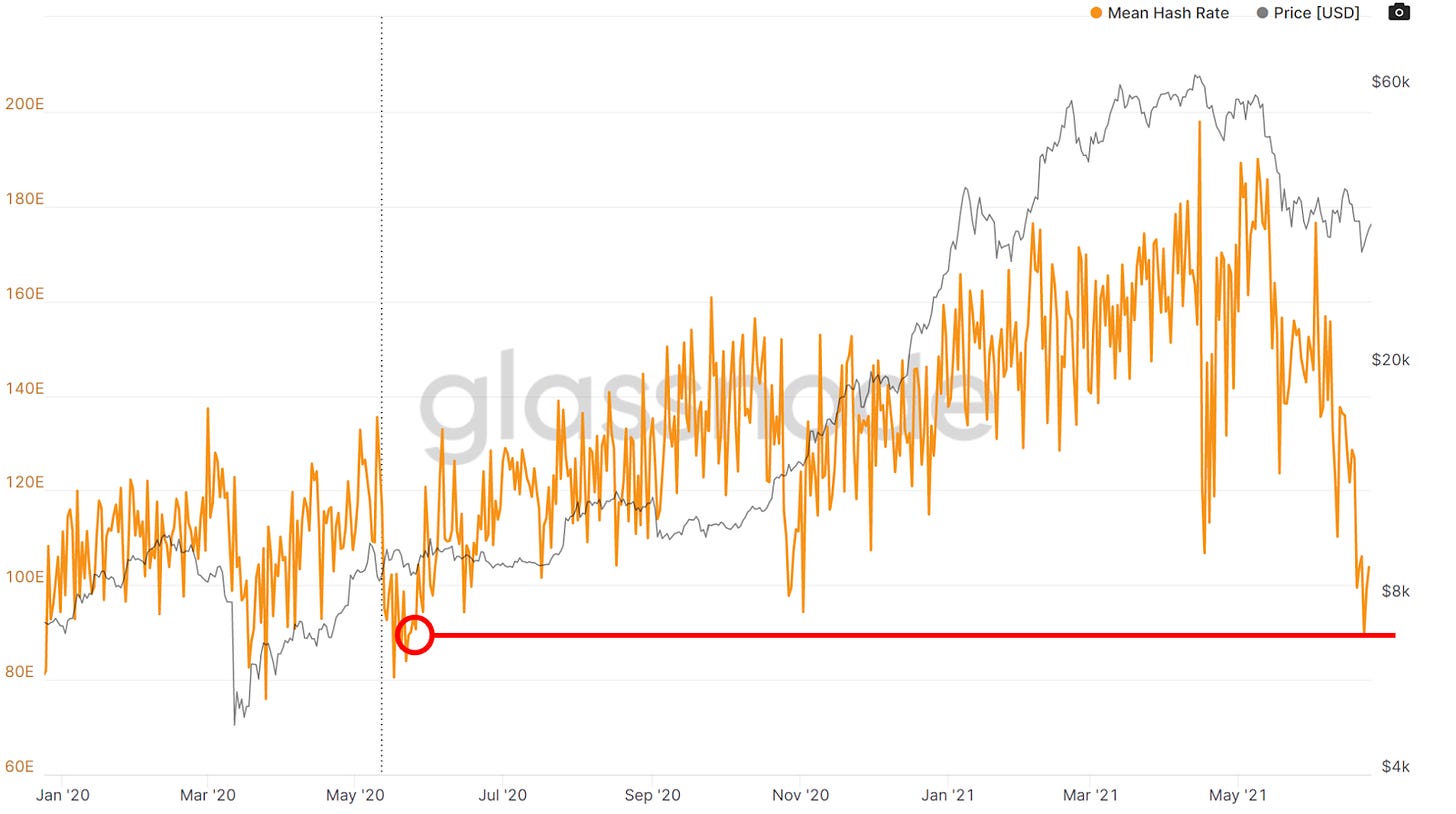Stay up to date on Green Candle by subscribing to our newsletter and following us on Twitter and Instagram!
In our Friday series, we take a deep dive into different asset investments. The first asset we’re covering - which we will stick with over the next several weeks - is Bitcoin (BTC). Our goal with this weekly series is to familiarize readers with BTC and to address common anti-BTC arguments. For full disclosure, Brandon and Daniel are strong believers in Bitcoin and both have allocated portions of their portfolios to BTC (HODL baby).
Before we address government regulation, let’s take a look at the State of the Coin
In the news:
China crackdown on BTC...again: As will be discussed in more detail below, Chinese officials ordered major cryptocurrency mining operations to shut down last Friday (June 18). The announcement caused an immediate drawdown in price, but HODLers did what they do best - they used it as an opportunity to scoop up cheap coins. The price has since rebounded and is well on its way back to pre-crackdown levels.
Portugal approves cryptocurrency exchanges: The central bank of Portugal has approved the registration of two cryptocurrency exchanges - Mind the Coin and Criptoloja. The bank has confirmed that both exchanges are in compliance with the legal and regulatory provisions on the prevention of money laundering and terrorist financing (AML/CFT).
Sotherby’s accepting crypto at auction: Sotherby’s, one of the world’s largest auction houses, announced that it would accept cryptocurrency bids on a 101.38-carat diamond going to auction in early July. The diamond is estimated to be worth $10-15M.
Pomp teams up with CashApp to spread BTC awareness: Yesterday (June 23), Anthony Pompliano delivered $500,000 worth of BTC to Twitter users who commented #PayMeInBitcoin. The hashtag was trending within an hour of his post! Green Candle got theirs!
A look on chain:
This week, we began using Glassnode to look at on-chain data. Stick with us while we get our feet wet with the data. As we move forward, we will try to provide more in-depth analyses!
SOPR - Spent Output Profit Ratio - is realized value divided by value at creation (price sold/price paid). Values greater than 1 indicate that coins are selling for more than their cost (in USD). When SOPR is less than 1, the opposite is the case. SOPR is now oscillating around zero. Similar patterns SOPR behavior was observed in September of 2020. You can learn more about SOPR here.
The difficulty ribbon was introduced by Willy Woo as a way of tracking price using mining “difficulty.” When mining is difficult (expensive), weaker miners capitulate, making mining easier. When this happens, stronger miners are more likely to hold onto their coins and drive the price up. This results in ribbon compression on the chart above and signals a bullish market. You can learn more about Difficulty Ribbons here.
Now, about government regulation….
Regulation is defined as “a rule or directive made and maintained by an authority.” The term can refer to a wide range of possible rules and directives. For example, a particularly harsh regulation would be a complete ban on mining and trading cryptocurrencies. A relatively softer regulation might be extending government-enforced tax laws to crypto assets. In this article, we will not try to convince you that BTC is not regulated - recent crackdowns and tax regulations already exist - rather, we will try to convince you that these regulations are short-term obstacles that BTC’s underlying technology will ultimately conquer. Note again the important second part of the definition of regulation: “...maintained by an authority.” While authorities now are making regulations, we believe that governments ultimately will not be able to maintain regulatory power over the new global financial system.
Harsh regulation: Chinese Crackdown
Let’s start with an example of harsh regulation. As noted above, last week the Chinese government issued a ban on cryptocurrency mining operations. Following the ban, hashrate fell to its lowest point since May of 2020 and panic selling ensued:
The Chinese government focused particularly on the province of Sichuan, one of the biggest bitcoin mining centers in the country. This is not the first time that the Chinese government has cracked down on cryptocurrencies. In 2017, China banned cryptocurrency exchanges, forcing owners of cryptocurrencies to take their digital tokens offshore. This did not stop Chinese crypto traders from buying and selling cryptos altogether, but it added another layer of complexity to trading and made it riskier and far less appealing for non-technical traders to buy/sell cryptocurrencies. While China’s newest ban shows that geopolitical factors can certainly influence BTC in the (very) short-term, here’s why we don’t see these regulations as a long term problem:
China is ruled by a dictatorial, communist government. Their actions in Hong Kong have proven that they care very little about economic liberty amongst their citizens. Their actions signal to us that BTC threatens their power. We’re bullish on anything that the CCP is threatened by.
The Chinese ban will redistribute mining power. The more distributed the mining network, the less power any individual government has to cause short-term shake ups in the future.
BTC has recovered from Chinese “bans” before, and has already done so again. When prices fell to below $30k following the mining ban, strong hands bought the dip while short-term holders oversold. At the time of this writing, BTC is hovering around $35k, up ~22% since its post-ban bottom.
Softer regulation: Taxation
Softer forms of regulation are coming in the form of taxation. The United States treats BTC as personal property and is subjected to capital gains tax. Although better than an all-out ban, high taxes and trading fees are regulations that can certainly reduce an investor’s appetite. Fortunately, the United States has a political system in which voters (at least theoretically) have a say in who creates the tax code at the federal level. Below the federal level, U.S. citizens have more direct control over their political climate. For example, they can choose to move to states with tax laws (or any other policies) that better suit their needs/wants (e.g., low property taxes, low income taxes, etc.). This brings us to our next point: BTC incentivizes competition.
Government acceptance and inter-state competition
As countries (and states/provinces within countries) regulate BTC to different extents, people will naturally gravitate toward those with more lenient regulations. These shifting population dynamics will incentivize countries/states to compete with one another on a global scale. This is already happening, both within the U.S. and abroad. The city of Miami, who’s Mayor Francis Suarez is very active in the Bitcoin community, is encouraging crypto startups to come to the city and passing legislation to help turn Miami into the next Silicon Valley. In our State of Coin two weeks ago, we discussed El Salvador making Bitcoin legal tender. Officials in Paraguay are planning to present legislation that aims to make the country a worldwide hub for cryptocurrency investors.
People are waking up. While governments can attempt to regulate BTC, it is a globally distributed digital network. Unless a government causes a worldwide internet outage, people will have access to the BTC network. And if the network cannot be shut down entirely, countries/states will have to compete for the top crypto investors/companies by creating environments conducive to the technology and those who understand it. Failure to compete - as appears to be the case currently for China - will be considered a massive geopolitical mistake by historians in the future.
Going forward
As we said in our introduction, we plan to address several arguments against BTC, one at a time, over the next several weeks. We hope that our weekly posts will encourage readers to learn more about this emerging technology.
Common arguments against BTC:
Be sure to check out our previous articles explaining Bitcoin and subscribe to get the new topics straight to your inbox!
BTC is not a transactional currency (cannot be used to buy everyday items)
Governments will not allow it or will heavily regulate it
It’s easy to lose access to BTC wallet
Happy Friday everyone - get after it this weekend!
Stay up to date on Green Candle news by subscribing to our newsletter and following us on Twitter and Instagram!
Brandon and Dan
Disclosure: The authors of this writing hold positions in cryptocurrency mentioned in this article. That cryptocurrency is Bitcoin. The article was written by Daniel Kuhman and Brandon Keys, and it expresses the author's own opinions. They are not receiving compensation for it. The information presented in this article is for informational purposes only and in no way should be construed as financial advice or recommendation to buy or sell any stock or cryptocurrency. Brandon and Daniel are not financial advisors. We encourage all readers to do further research and do your own due diligence before making any investments.








